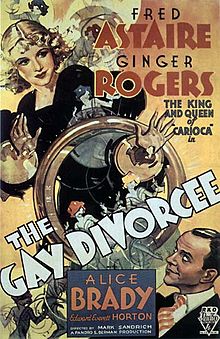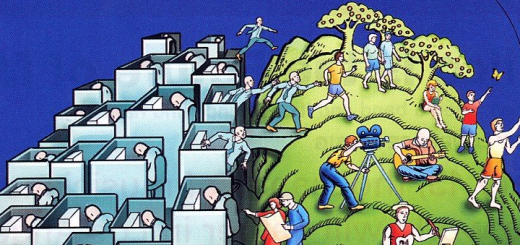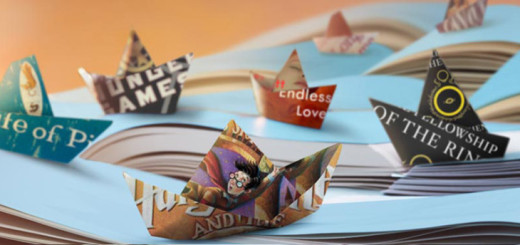When Language Changes: Don We Now Our FUN Apparel?
 Deck the hall with boughs of holly,
Deck the hall with boughs of holly,
Fa la la la la la la la la.
‘Tis the season to be jolly,
Fa la la la la la la la la.
Don we now our gay apparel
Troll the ancient Christmas carol,
Fa la la la la la la la la.
Since at least 1866, this has been the first stanza of Deck The Halls, a popular Christmas carol that dates back to Wales in the 1500s. Recently, though, Hallmark has gotten a fair bit of bad publicity for changing “Don we now our gay apparel” to “Don we now our fun apparel” on a holiday sweater it is selling. Getting beyond the philosophical implications of changing the word, it got me thinking as a writer about how language changes over time.
Although gay has taken on an entirely different meaning in today’s world, it was used interchangeably with happy / fun until just the past few decades. It’s used in the Flintstone’s theme song to mean carefree:
Flintstones. Meet the Flintstones.
They’re the modern stone age family.
From the town of Bedrock,
They’re a page right out of history.Let’s ride with the family down the street.
Through the courtesy of Fred’s two feet.When you’re with the Flintstones
you’ll have a yabba dabba doo time.
A dabba doo time.
You’ll have a gay old time.
There was also a movie in 1934 called The Gay Divorcee, starring Fred Astaire and Ginger Rogers, and which was nominated for Best Picture. Obviously, it’s not about two men or two women divorcing.

But over time, language changes, and sometimes those changes happen pretty quickly. However, as writers, to what extent should we revise language to reflect those changes? If there was a remake of The Gay Divorcee, should the title be changed? If The Flintstones get a reboot, should the theme song be modified? In both cases, I’d say yes. Although gay is still used today to mean happy and fun, the fact is that when you use it in a sentence, people think of gay in regards to sexual identity.
But in the case of a Christmas carol, should the lyrics be changed at all? You can’t reboot or remake a song after all, and plenty of old songs have words that mean something entirely different nowadays. Changing “Don we now our gay apparel” to “Don we now our fun apparel” not only doesn’t flow as well when singing it, it just sounds weird. Even if most people no longer use gay to mean fun, I don’t think you should reboot traditional songs to reflect modern usage.
After all, you wouldn’t change the words in an old book or poem, so why would you change the words in a song?












I think the reason the carol seems off is because it puts a contemporary word like “fun” next to a dated word like “apparel”, which most kids don’t even know the first time they learn the song. Just as they wouldn’t know what gay meant at the time of the song. So if they’re going to bring it to the level of kids who might be singing it, they might want to change apparel, too?
For the movie title and the Flinstone’s song, there are pretty easy substitutions. The Happy Divorcee rings with what I assume is the similar juxtaposition of the original, while slipping in “swell” instead of “gay” would keep the dated feel of the theme song without the potential misunderstanding.
Also, haven’t there been instances of people changing words in old classics? I’ll see if I can’t find an article and share it here.
The first thing I thought of after reading this was “The Adventures of Huckleberry Finn.” I hope all you aspiring authors have read this, in its unabridged form, as it is a truly excellent masterpiece.
That being said, I was apalled a couple of years back when we were discussing the book in class and my fellow students kept snickering every time the word “negro” was brought up. Sure, it might be extremely derogatory now, but at the time it was written, there was no problem with that word.
I think a large part of the problem is that people can’t seperate modern and outdated word usage in their minds. They say that whatever is true now, whatever that word means now, must be how it always meant or how it has always been used. Which is simply not the case.
Not to mention that the meanings we apply to words, as well as the number of words that we use or are even familiar with has drastically decreased within the last 50-100 years. This is incredibly tragic, in my opinion. Literature is less concise, meaning is more subjective, and communication is more difficult. (Even learning a second language can be difficult when you have a limited vocabulary in your own.)
All that being said, I’m not sure how I would feel about wearing a sweater that has “gay apparel” printed in bright green letters on the front. xD
In some cases, I guess it may be okay to change it to reflect “modern ways”, because as Eloquent says, I wouldn’t wear a sweater that says ‘Gay Apparel’.
When it comes to the song/carol though, I think it reflects a culture and I think it would be nicer if it wasn’t changed so. While I know words get tossed and turned over the years, I would prefer it not being changed here.
On a similar note, Enid Blyton’s books were a huge, huge part of growing up for most kids in my age (I guess it’s not as popular in America), and I was appalled at seeing this article : http://www.theguardian.com/books/2010/jul/23/enid-blyton-famous-five-makeover
If the mentioned words were changed, I think the whole essence of the book would be lost.